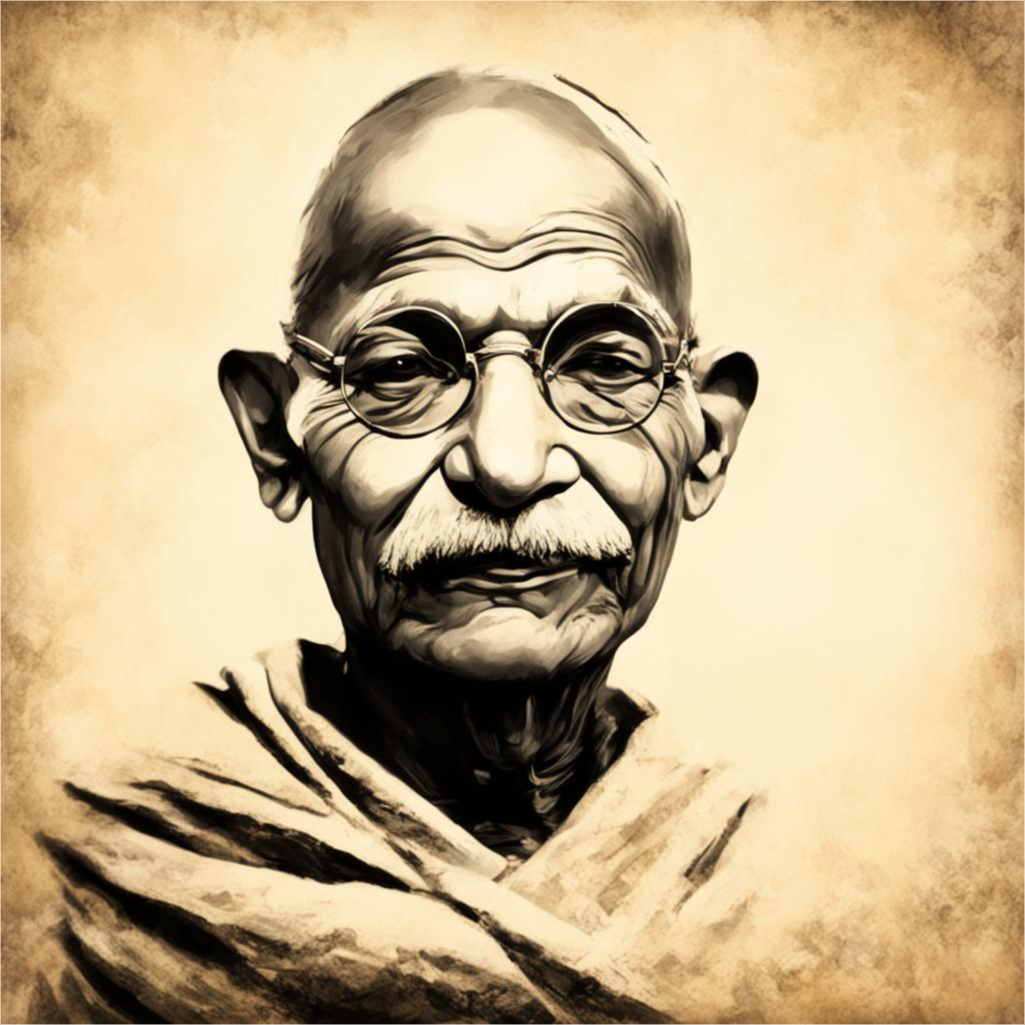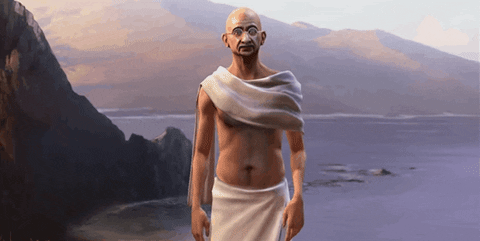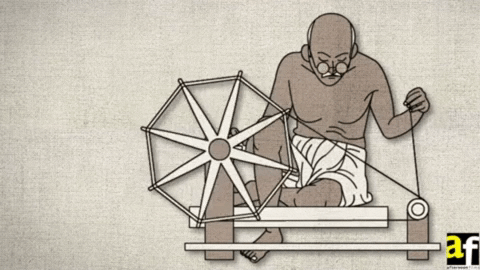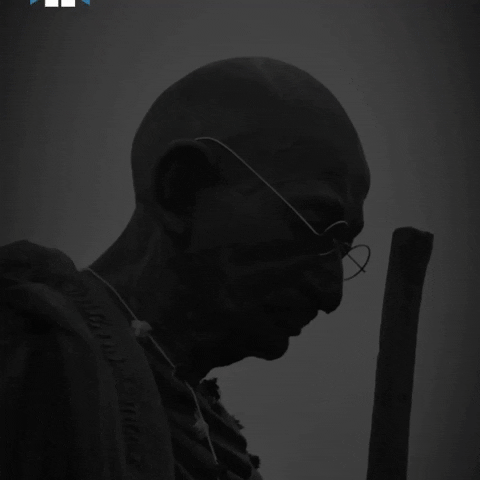
Mahatma Gandhi was an Indian independence activist who was the leader of the Indian National Congress and is considered the father of the nation. He was a pioneer of satyagraha, a nonviolent resistance movement against British rule in India.
Gandhi's philosophy of nonviolent resistance inspired civil rights and freedom movements around the world, including the American Civil Rights Movement led by Martin Luther King Jr. He was assassinated in 1948, but his legacy lives on, and he continues to be an inspiration to people all over the world who strive for justice and peace.
In this quiz, you will have the opportunity to test your knowledge of Mahatma Gandhi and his legacy. You will be asked questions about his life, his philosophy of nonviolent resistance, and his impact on India and the world, and you will be given the chance to show your understanding of this important figure in the fight for independence and justice.
When was Gandhi born?
October 2, 1869
August 15, 1947
January 26, 1930
June 20, 1911
What was Gandhi's occupation before he became a political leader?
Lawyer
Teacher
Businessman
Doctor
What was the main philosophy of Gandhi?
Non-violence
Terrorism
Violence
Revenge
Where did Gandhi start the Salt March in 1930?
Delhi
Mumbai
Ahmadabad
Sabarmati Ashram
What was the main reason for Gandhi to launch the Dandi March?
To protest against the salt tax
To protest against the high price of sugar
To protest against the ban on cow slaughter
To protest against the ban on alcohol
What was the outcome of Gandhi-Irwin Pact?
Gandhi was arrested and the pact was deemed invalid
The British agreed to withdraw from India
The pact resulted in the release of political prisoners and Gandhi calling off the civil disobedience movement
The pact resulted in an increase in tensions between Gandhi and the British government
What was Gandhi's role in the Indian National Congress?
President
Secretary
Treasurer
Founder
What was the result of the Simon Commission?
India gained independence from British rule
The British government agreed to grant India self-governance
The Commission was boycotted by Indian political leaders and resulted in widespread protests
The Commission recommended the continuation of British rule in India
What was the significance of the Quit India Movement?
It resulted in India gaining independence from British rule
It resulted in the release of political prisoners and the end of the civil disobedience movement
It was a call for immediate independence from British rule and resulted in widespread protests and arrests of leaders
It resulted in increased tensions between Gandhi and the British government
What was Gandhi's view on caste system?
He was in favor of the caste system
He believed in the caste system but advocated for its reform
He was against the caste system and advocated for its abolition
He believed that the caste system was an integral part of Indian culture and should be preserved
What was the significance of Gandhi's fast in 1932?
It resulted in the release of political prisoners
It was a protest against the British government's decision to separate India's depressed classes
It was a demonstration of Gandhi's commitment to non-violence
It resulted in the withdrawal of the Salt March
Awesome Performance: A Quiz on Mahatma Gandhi
Your excellent score on Mahatma Gandhi showcases your knowledge of this spiritual and political leader, who used nonviolent resistance to lead India to independence from British rule.
Not This Time: Your Mahatma Gandhi Quiz Results
Unfortunately, you did not reach a high score in the Mahatma Gandhi quiz. While it's not uncommon to miss some questions, there is still a lot of room for improvement and learning. Why not take a look at some additional resources to help you expand your knowledge and perhaps try taking the quiz again in the future? Keep up the good work!











